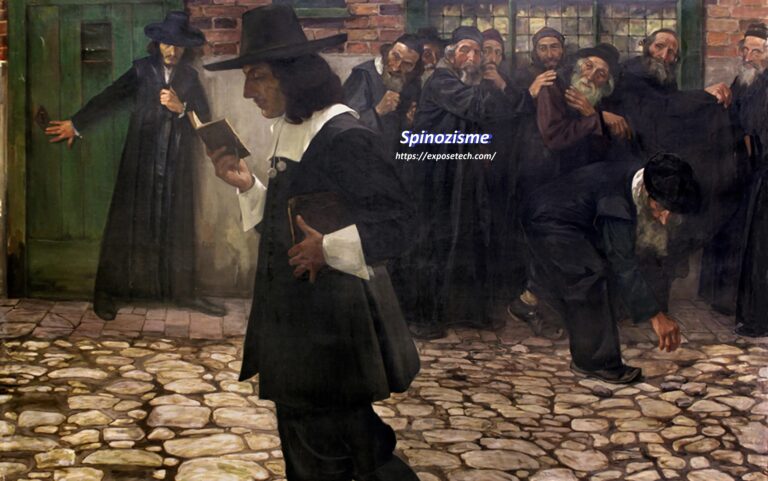The philosophy of Spinozisme, formulated via the Dutch thinker Baruch Spinoza inside the seventeenth century, stays a subject of fascination and debate among scholars and philosophers to at the moment. Rooted in rationalism and pantheism, Spinozisme offers a completely unique perspective on metaphysics, ethics, and the nature of life. In this text, we delve into the intricacies of Spinoza’s philosophy, analyzing its key concepts and implications.
The Life and Times of Baruch Spinoza
Before delving into Spinozisme itself, it’s essential to apprehend the context wherein Baruch Spinoza lived and developed his ideas. Born in 1632 in Amsterdam to Portuguese Jewish parents, Spinoza’s youth become marked through spiritual persecution and social ostracism. Despite dealing with adversity, he pursued his highbrow hobbies and eventually emerged as one of the most influential philosophers of the 17th century.
Spinoza’s philosophical adventure become fashioned by means of the tumultuous political and religious panorama of his time, marked with the aid of conflicts between traditional non secular orthodoxy and rising clinical idea. His works, which includes the seminal “Ethics” and “Theological-Political Treatise,” challenged mounted beliefs and laid the basis for modern philosophical inquiry.
Understanding Spinozisme: Key Concepts
At the heart of Spinozisme lies the idea of substance monism, which asserts that there may be simplest one substance in the universe, encompassing both material and intellectual components. This substance, consistent with Spinoza, is God or Nature, a unique entity this is limitless, eternal, and self-brought on. This perception stands in comparison to dualistic perspectives that posit a separation among mind and frame or between God and the material global.
Central to Spinozisme is the idea of “conatus,” or the drive for self-renovation inherent in all beings. Spinoza argues that the entirety in the universe, from man or woman organisms to celestial our bodies, strives to maintain its existence and maximize its energy. This concept forms the premise of Spinoza’s moral framework, which emphasizes the pursuit of self-cognizance and the cultivation of virtue.
Another key idea in Spinozisme is the perception of determinism, which posits that every one activities, inclusive of human actions, are causally decided by means of preceding factors. According to Spinoza, loose will is an illusion, as humans are certain through the identical legal guidelines of nature that govern the rest of the universe. This deterministic outlook challenges traditional notions of ethical duty and accountability, prompting questions about the character of employer and autonomy.
Ethics and Politics in Spinozisme
Spinoza’s ethical philosophy, mentioned in his work “Ethics,” is grounded in his metaphysical framework and targets to provide a rational basis for human conduct. According to Spinoza, the very best correct lies inside the attainment of expertise and the cultivation of intellectual and moral virtues. True happiness, he argues, comes from information one’s place in the herbal order and aligning one’s movements with the dictates of cause.
In comparison to standard moral systems based totally on divine command or social conventions, Spinoza’s ethics are rooted in a deep know-how of human nature and the laws of causality. He rejects the belief of ethical absolutes and as an alternative advocates for a pragmatic technique to ethics based at the pursuit of character and collective properly-being.
Politically, Spinoza’s ideas had been similarly modern, advocating for a secular, democratic society primarily based on principles of freedom and tolerance. In his “Theological-Political Treatise,” he defends the separation of church and kingdom and argues for the significance of non secular freedom and freedom of expression. Spinoza’s vision of a liberal democracy, grounded in purpose and tolerance, continues to resonate in current political discourse.
Critiques and Legacy of Spinozisme
Despite its enduring have an impact on, Spinozisme has now not been with out its critics. Religious government condemned Spinoza as a heretic, and his works had been banned in many circles for centuries. Even within philosophical circles, Spinoza’s ideas were met with skepticism and competition, particularly his rejection of unfastened will and his deterministic worldview.
However, within the centuries following his loss of life, Spinoza’s philosophy skilled a resurgence of hobby and appreciation. Enlightenment thinkers which include Voltaire and Rousseau have been inspired via his thoughts, and his work had a profound impact on subsequent philosophical actions, such as German idealism and existentialism.
In the contemporary technology, Spinozisme maintains to inspire students and thinkers across disciplines, from philosophy and theology to psychology and political concept. His emphasis on purpose, tolerance, and the solidarity of all lifestyles remains applicable in an more and more fragmented and polarized global.
Conclusion: Embracing the Legacy of Spinozisme
In end, the philosophy of Spinozisme offers a profound and enduring angle on the nature of truth, ethics, and human flourishing. Rooted in rationalism, pantheism, and a deep appreciation for the interconnectedness of all things, Spinoza’s ideas task us to reconsider our assumptions about the world and our vicinity within it.
While Spinozisme won’t provide smooth solutions to lifestyles’s existential questions, it invites us to interact in rigorous inquiry and self-reflection, striving for a deeper understanding of ourselves and the world round us. In an age marked via uncertainty and division, Spinoza’s message of purpose, tolerance, and the pursuit of understanding remains as applicable and provoking as ever.

